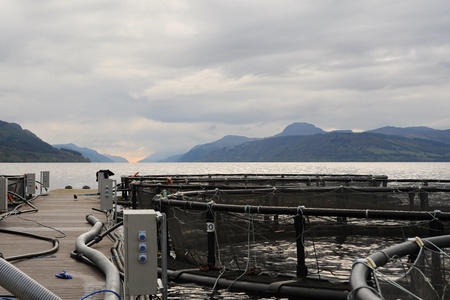A virtual centre bringing together a vast amount of expertise on aquaculture related research has been launched at the University of Aberdeen.
The International Centre for Aquaculture Research and Development (ICARD) has been established to bring together a group of 25 University of Aberdeen experts in environment and food security to conduct and promote aquaculture research, primarily in the areas of algal culture, shell fish and fish farming and nutrition.
The aim of the centre is to build upon this expertise and to provide various stakeholder groups, including fish farmers, pharmaceutical companies, fish processors and retailers, with an information resource led by experts in the field.
Professor Pieter van West, Director ICARD, said: “Aberdeen has a wealth of expertise and experience in research supporting the aquaculture industry, and we can provide a comprehensive and all-encompassing knowledge exchange service to the sector.
“The centre is made up of academics from across various schools at the University, and this interdisciplinary approach means that we can consolidate and strengthen these areas even further.”
Professor Sam Martin, said: “The Centre is one of only very few in the world that can offer research support from farm to fork, with particular focus on areas of disease, health, nutrition and consumption.”
Professor Chris Secombes added: “To satisfy the demand for aquaculture produce, the ICARD based at the University of Aberdeen will play a key role to help national and global aquaculture industries achieving their goals.”
The University of Aberdeen recently received more than £1M from two of the UK’s leading research councils to carry out four research projects focusing on addressing the challenges facing the aquaculture sector.
The Biotechnology and Biological Sciences Research Council (BBSRC) and Natural Environment Research Council (NERC) awarded funding to 21 research projects in total with Aberdeen receiving four of these grants. The projects will help to improve understanding of the factors affecting sustainable aquaculture and anticipate how climate change may create future challenges.


